
7 minute read
Float Loading Your Horse 12
https://www.esi-education.com/
If you feel you need to seek professional help. Please look up an ESI Practitioner. You will be assured of a non-aversive, kind and intelligent approach:
Advertisement
https://www.esi-education.com/espractitionersau/
Finally, a big thank you to Dr Andrew McLean for being an amazing advocate for training horses for their optimum welfare. You are a life-changer to so many of us.
Jen is the owner of Purely Positive Animal Training and works with people, horses and dogs. Her passion is enhancing the human/animal bond. Jen’s daily work is varied, from coaching riders, training horses and Equine Assisted Therapy to working with behavioural issues with horses and dogs. Jen enjoys the variety her work offers her and her philosophy is to enhance the lives of others through education and building understanding. Her commitment to animals is shown by the ethical training methods she advocates. Jen believes that when working with conflict behaviours, we must address the causes with a solid basis in science combined with understanding and compassion Equitation Science gave her a deeper understanding and changed the relationship she had with her horses and she has never looked back. Jen works from her yard at Samford and also from University of Queensland Veterinary Group. She also will travel to see clients. Jen has a Dip. Equitation Science International, a Cert IV with Delta as a Behavioural Trainer. With over thirty years’ experience in coaching, training and helping others, Jen is a passionate advocate of ESI and the role it plays in our everyday interactions with our horses.
PHONE: 0424 513 262 EMAIL: jendavy09@gmail.com
Dr Oliver Liyou
BVSc (Hons1) MACVSc (Eq Dent)

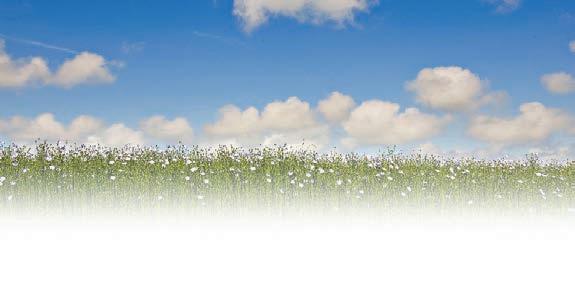
FLAX SEED OIL NATURAL, COLD PRESSED AND NO ADDED INGREDIENTSFLAX SEED OILFLAX SEED OIL NATURAL, COLD PRESSED AND NO ADDED INGREDIENTS NATURAL, COLD PRESSED AND NO ADDED INGREDIENTS
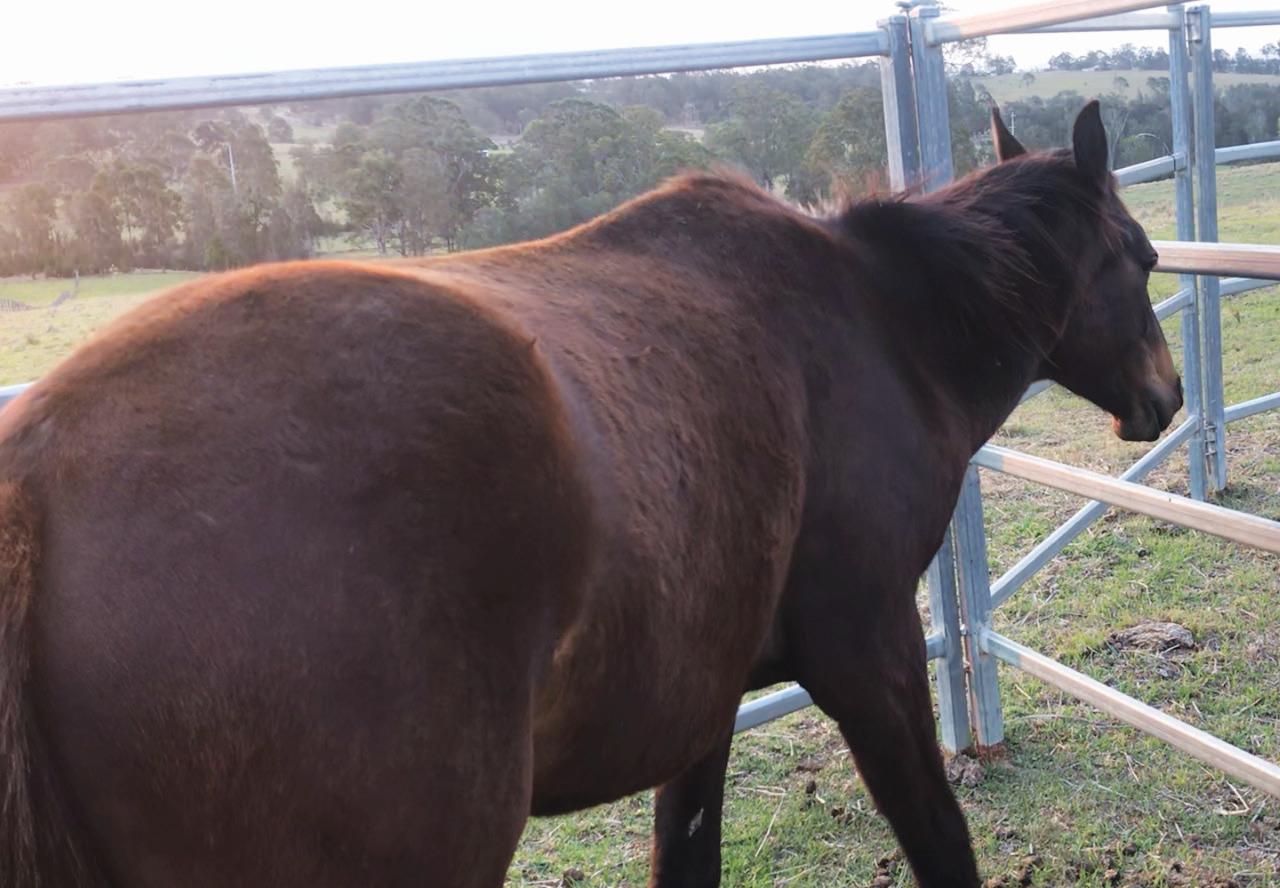
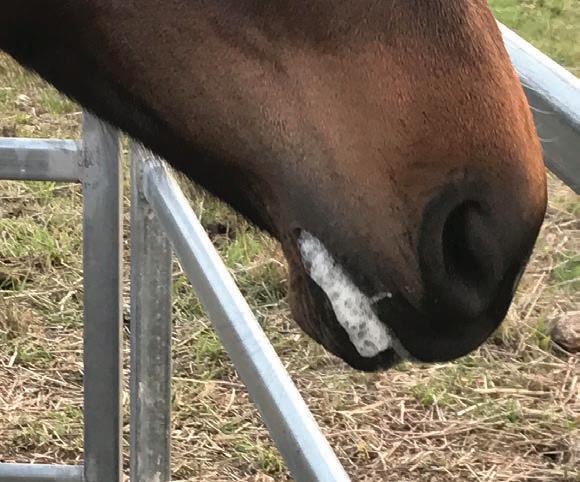
Flax Seed Oil provides the richest (almost 60%) natural source of Omega 3, an essential fatty acid (EFA) which is not generally present in equine foods. Like all animals, horses cannot manufacture this essential fatty acid which is so important for their overall health. Flax Seed Oil provides the richest (almost 60%) natural source of Omega 3, an essential fatty acid (EFA) which is not generally present in equine foods. Like all animals, horses cannot manufacture this essential fatty Flax Seed Oil provides the richest (almost 60%) natural source of Omega 3, an essential fatty acid (EFA) which is not generally present in equine foods. Like all animals, horses cannot order onlineacid which is so important for their overall health. manufacture this essential fatty acid which is so important for their overall health. Worried about rancidity and toxicity? Use Flax for a safer option! www.flaxseedaustralia.co or call 1800 255 288. order online www.flaxseedaustralia.co or call 1800 255 288. order online www.flaxseedaustralia.co or call 1800 255 288.
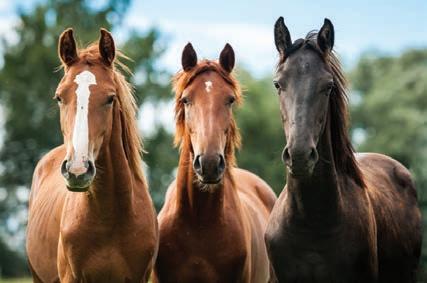
available in 1ltr, 5ltr and 20ltr.
Choke is a not so uncommon problem in horses, and can lead to devastating consequences, so it is a condition that owners and trainers need to become educated about.
Unlike in people, where choking refers to a blocked airway, “choke” in horses is referring to a blockage of the oesophagus - the tubular part of the gastro-intestinal tract that carries food boluses from the throat to the stomach.
Signs of a horse choking could include it bracing its neck and stretching its neck forward (pic 1), or food coloured fluid running out of both nostrils, or the horse salivating (pic 2), or even the horse laying down and/or rolling (pic 3) as seen with colic (abdominal pain).
3
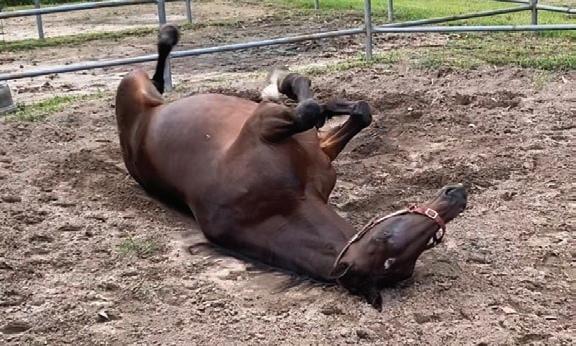
The blockage usually comprises of a mass of poorly chewed food. But it can also be a foreign body like a ball of chewed up lead rope. The poorly chewed food will not be adequately moistened and lubricated with saliva, and so does not freely travel along the tube pushed by gentle muscular contractions of the oesophageal wall. Or it may be an improperly chewed piece of carrot for example. Reasons for the poorly chewed feed include the horse rushing or gutsing down some dry pellets or feedstuffs if it is very hungry or in a hurry to eat the food before a herd mate chases them away. Bad teeth are another common reason for choking, as the horse cannot or does not want to chew the food properly due to dysfunctional teeth or pain. So then it tries to swallow the food before it has been chewed properly and moistened into a spindle shaped and slippery bolus ready to be swallowed. The food then gets stuck somewhere along the oesophagus tube, and then anything the horse keeps eating will be unable to pass to the stomach, and a back log of food and saliva will overflow out the nostrils and mouth. A condition that is similar in presentation to choke is when the horse gets a piece of wood stuck across the roof of its mouth (pic 4), and that can show as salivating and opening the mouth strangely when trying to eat.
If the horse cannot swallow the food and saliva, it then either runs out the nose, or even worse, runs down into the trachea (wind-pipe) to the lungs. Sometimes the horse will manage to clear the obstruction itself in the first 10 minutes or so. But if it does not clear itself, then it could be in real danger of ongoing problems. Should the owner suspect the horse is choking, it is important to prevent the horse from eating more food that would make the condition worse. You can do that by taking the food away, and/or by muzzling the horse with a nose bag, or a bucket with holes cut in the bottom of it. Then the owner should phone their emergency vet to alert them that they may be needed soon. If the owner sees the horse choke on its food, then sometimes a hose placed in the front of the mouth to rinse out the mouth, and then encourage the horse to swallow some saliva and water can moisten a Complete equine and bovine veterinary services in the NSW veterinary services in the NSW Northern Rivers, covering Lismore, Northern Rivers, covering Lismore, Casino, Kyogle, Bonalbo, Ballina Casino, Kyogle, Bonalbo, Ballina and surrounding areas. and surrounding areas.
• Equine veterinary dentistry, using
Powerfloat and portable crush Powerfloat and portable crush • • Equine reproduction, including Equine reproduction, including chilled and frozen AI chilled and frozen AI • • Equine surgery, including Equine surgery, including castrations, leg surgery, castrations, leg surgery, other general surgeries other general surgeries (also work closely with (also work closely with specialist equine surgeons) specialist equine surgeons) • • Hospitalisation facilities for horses Hospitalisation facilities for horses requiring ongoing treatment requiring ongoing treatment • • Digital real-time radiography, Digital real-time radiography, ultrasonography and endoscopy, ultrasonography and endoscopy, including for airways and stomachs including for airways and stomachs • • Equine podiatry, with particular Equine podiatry, with particular interest in laminitis treatment interest in laminitis treatment and rehabilitation and rehabilitation • • Equine ophthalmology, Equine ophthalmology, including more specialised eye including more specialised eye surgeries following eye trauma surgeries following eye trauma
Dr Bruno D. Ros BVetBio BVSc (Hons) MOBILE 0427 293 227 EMAIL bruno@neequinevets.com.au “Old Dairyvale” 488 B Kyogle Rd Tuncester NSW 2480 www.neequinevets.com.au
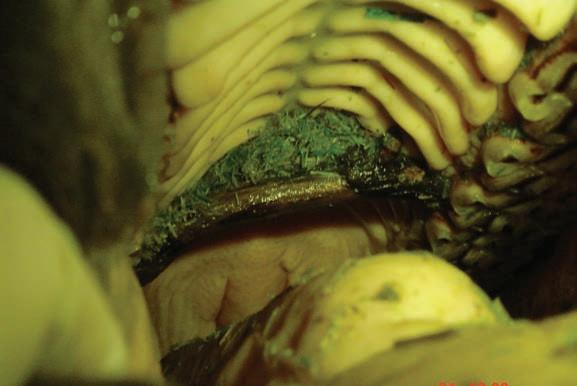
4
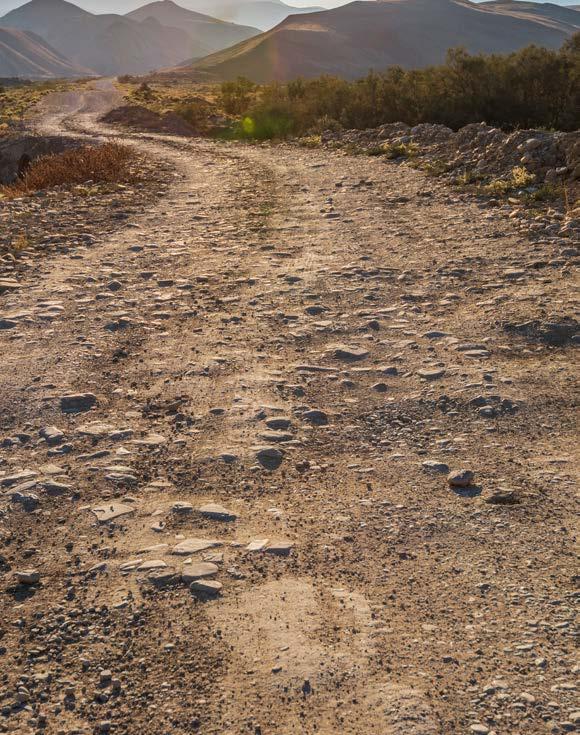
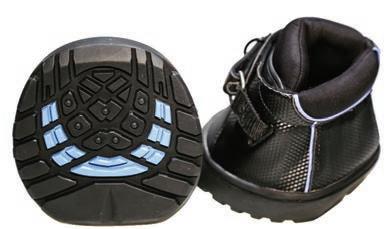
EASYBOOT GLOVE 50
EASYBOOT SNEAKER
The Easyboot Glove 50 is built on the Easyboot Glove shell, but replaces the fabric gaiter with a urethane heel sling covered in neoprene. The heel sling comes in two different heights to suit different heel heights. Perfect for performance and leisure riding. $142.50 each
The Easyboot Sneaker is designed to give the hoof maximum flexibility. A great hoof boot for pleasure riders, turn out, and therapy uses. $130 each







